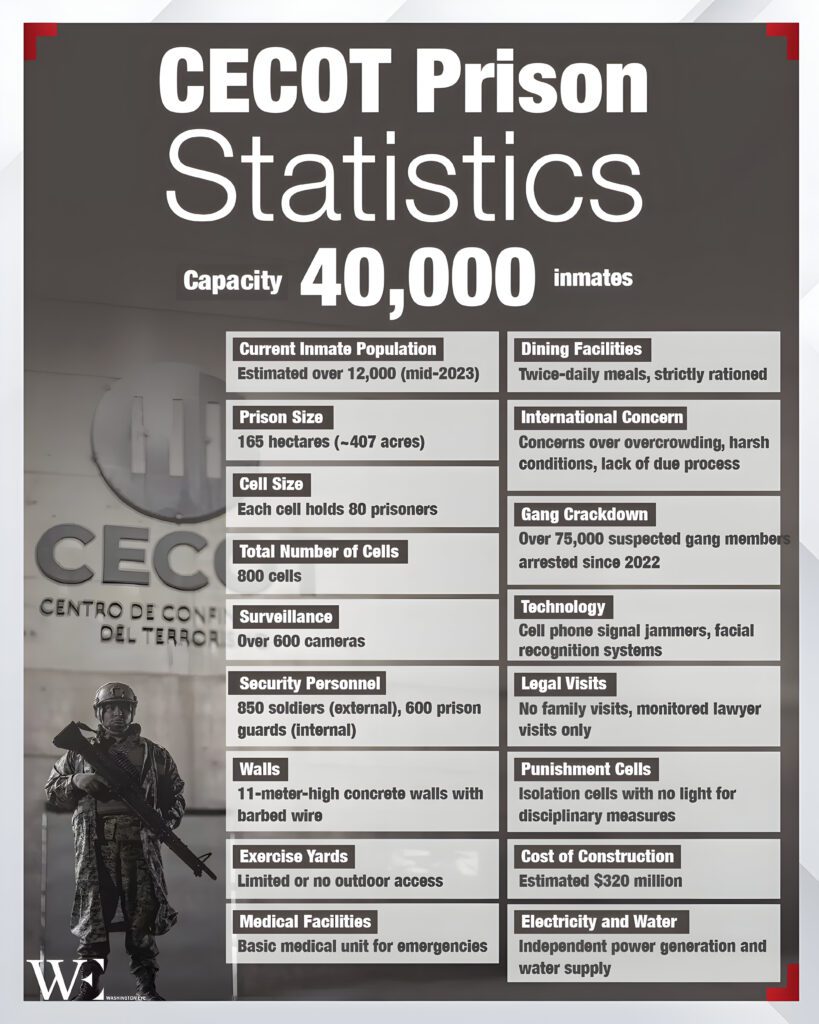In a recent development, President Donald Trump has endorsed a proposal from El Salvador to house U.S. criminals, including American citizens, in Salvadoran prisons. This initiative emerged after discussions between U.S. Secretary of State Marco Rubio and Salvadoran President Nayib Bukele, wherein Bukele offered to incarcerate violent criminals currently held in U.S. prisons for a “relatively low” fee.
The proposal includes accepting deported criminal migrants of any nationality, as well as U.S. citizens and legal residents convicted of violent crimes.
U.S. Support to the Proposal
Following the proposal, President Trump expressed support, stating he would deport U.S. citizens convicted of crimes a heartbeat” if legally permissible. He emphasized the potential cost savings and the opportunity to remove dangerous individuals from American communities. Secretary Rubio acknowledged the offer as “very generous” and noted that it aligns with the administration’s efforts to reduce federal government expenses.
Legal Implications
The proposal raises significant legal challenges, particularly concerning the constitutional rights of U.S. citizens. The U.S. Constitution provides protections against the involuntary expatriation of citizens, and deporting American citizens to serve sentences abroad could face substantial legal hurdles. Experts suggest that implementing such a policy would require thorough legal examination and potentially new legislation to address constitutional concerns.
Feasibility of Implementation
While the proposal is unprecedented, its implementation remains uncertain due to the aforementioned legal challenges. The U.S. government would need to navigate complex legal frameworks to authorize the transfer of American citizens to foreign prisons.
Additionally, there are concerns about the human rights conditions in Salvadoran prisons, which are known for their harsh conditions and overcrowding. These factors contribute to the complexity of executing such an agreement.
Flashback to the UK-Rwanda Asylum Scheme
The U.S. proposal bears striking similarities to the UK’s controversial plan to relocate asylum seekers to Rwanda, though there are key differences. In 2022, the UK government announced an agreement to send certain asylum seekers to Rwanda for processing and resettlement. This move aimed to deter illegal migration, shift responsibility for asylum seekers outside the UK, and reduce strain on domestic immigration services.
However, the plan faced immense legal pushback and was ultimately struck down by the UK Supreme Court in 2023, with concerns over the safety and legality of transferring individuals to a nation with different legal and human rights standards. The plan was officially abandoned in 2024.
While both policies center on outsourcing detention to foreign nations, the U.S. proposal is distinct in that it involves American citizens and convicted criminals, rather than asylum seekers. This distinction introduces constitutional challenges that were not present in the UK-Rwanda scheme.
Also, whereas the UK’s plan sought to prevent migrants from reaching British soil in the first place, the U.S. proposal involves deporting individuals already within the justice system. Both policies have drawn criticism for potential human rights violations, and both test the boundaries of international law and national sovereignty in handling criminal justice and immigration matters.
A key question remains: If the UK’s Rwanda plan collapsed under legal scrutiny, will the U.S. face similar obstacles? Given the constitutional protections of U.S. citizens and the lack of legal precedent for outsourcing incarceration, Trump’s proposal is likely to face significant legal and political hurdles, much like its British counterpart.
Conclusion
While the proposal to incarcerate U.S. criminals in El Salvador presents a novel approach to addressing domestic crime and reducing incarceration costs, it faces significant legal and ethical challenges. The feasibility of such a policy remains uncertain, and it would require careful consideration of constitutional protections and human rights implications if it is to be implemented.















